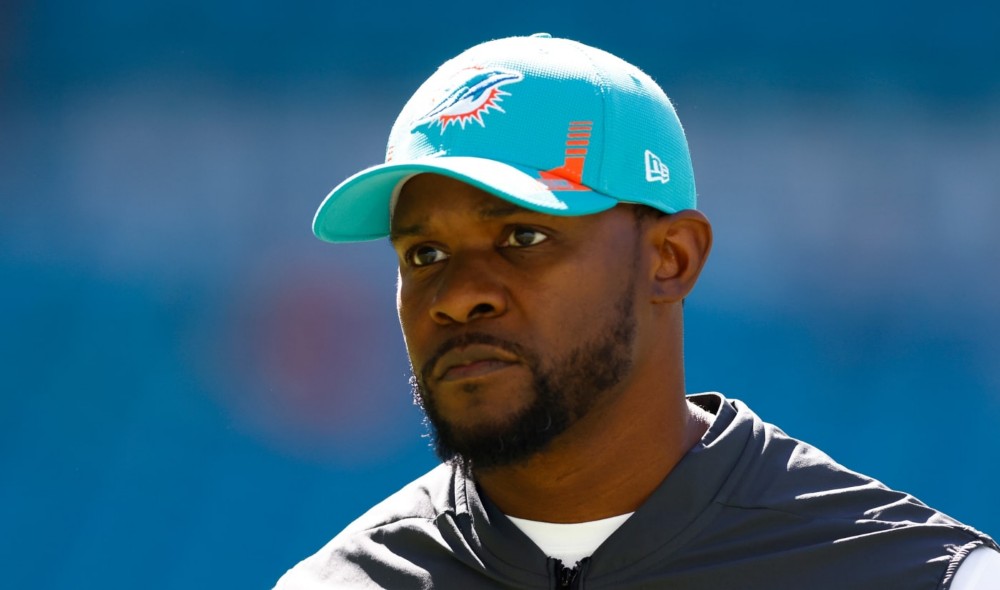After being fired by the Miami Dolphins on Jan. 10, former head coach Brian Flores has filed a lawsuit against the NFL and the New York Giants. He claims racial discrimination resulted in his dismissal from the team. The suit cites statistics that indicate the league’s policies discriminate against black coaches. As such, Black coaches must meet higher success thresholds to stay in the NFL, according to the NFL.

After losing the job with the Dolphins, Flores has been in search of a new job. But his quest to replace Gruden has been fruitless. Despite his many offers, the Dolphins have refused to give him the job he wanted. After Flores was let go, the team began defaming him in the media. Often, strong black men are demonized by the media as “angry black men” – a stereotype often attached to African-Americans. Similarly, white men are perceived as passionate about similar attributes.
While the NFL has had many opportunities to do the right thing and improve race relations, Mr. Flores argues that it has made racial discrimination worse, and has ignored its own promises to improve race relations. It has found that the only way to change this is through the courts. With his lawsuit, the NFL will be judged by a jury of his peers, and Mr. Fleres hopes to make history.
Despite the allegations made in the lawsuit, Flores says that the NFL is simply paying lip service to diversity by hiring Black head coaches and managers. As a result, he was given interviews for positions that he never would’ve gotten. The suit claims that the league must implement a program to hire and promote Black assistant coaches. It is unclear if Flores’ claims can be proven in court.
In his lawsuit, Flores also accused the league of racial discrimination against Black coaches. His former employer, the Texans, fired him following a 4-13 rookie season. He also accused the NFL of denying him the opportunity to hire a Black head coach after receiving racist texts. In addition, he alleges that he was told his job wasn’t worth saving.
In his lawsuit, Flores also cited the example of David Culley, who was fired from the Texans. He said the Texans’ decision to fire him was a “selection” and that the NFL was not a discrimination against Culley. But the allegations are largely unfounded, and the Texans have a long way to go before the NFL is forced to pay him.
Flores also cites Bill Belichick, the New England Patriots’ head coach. He says he accidentally told Flores of Daboll’s hiring three days before he was interviewed by the Texans. The texts, which were meant for Culley, were sent to the wrong Brian. Belichick’s email and text messages were received by both Flores and the wrong person, which both sides later acknowledged were mistakenly congratulated Daboll.
The suit cites a series of text messages that allegedly revealed Belichick’s comments to Flores. This was followed by a dinner with Culley and his former colleague Joe Schoen. The Bills and Giants publicly announced Daboll as their new head coach on January 28. These texts and the rest of the case are now part of the lawsuit.
In the lawsuit, Flores claims that the Broncos were unprofessional in evaluating Flores and in hiring him. Despite the NFL’s “Rooney rule,” only four percent of NFL head coaches are black. In fact, the NFL has been attempting to recruit more black candidates for years, but the lack of diversity in the coaching ranks is a growing concern across the country.
The suit cites a litany of incidents in which the NFL has disregarded minority candidates. He claims the Giants knowingly hired an African-American man before interviewing him. His allegations were prompted by the Rooney Rule, which requires teams to interview minority candidates and hire them for head coaching positions. As a result, the lawsuit alleges that the NFL has been negligent in its hiring practices.



